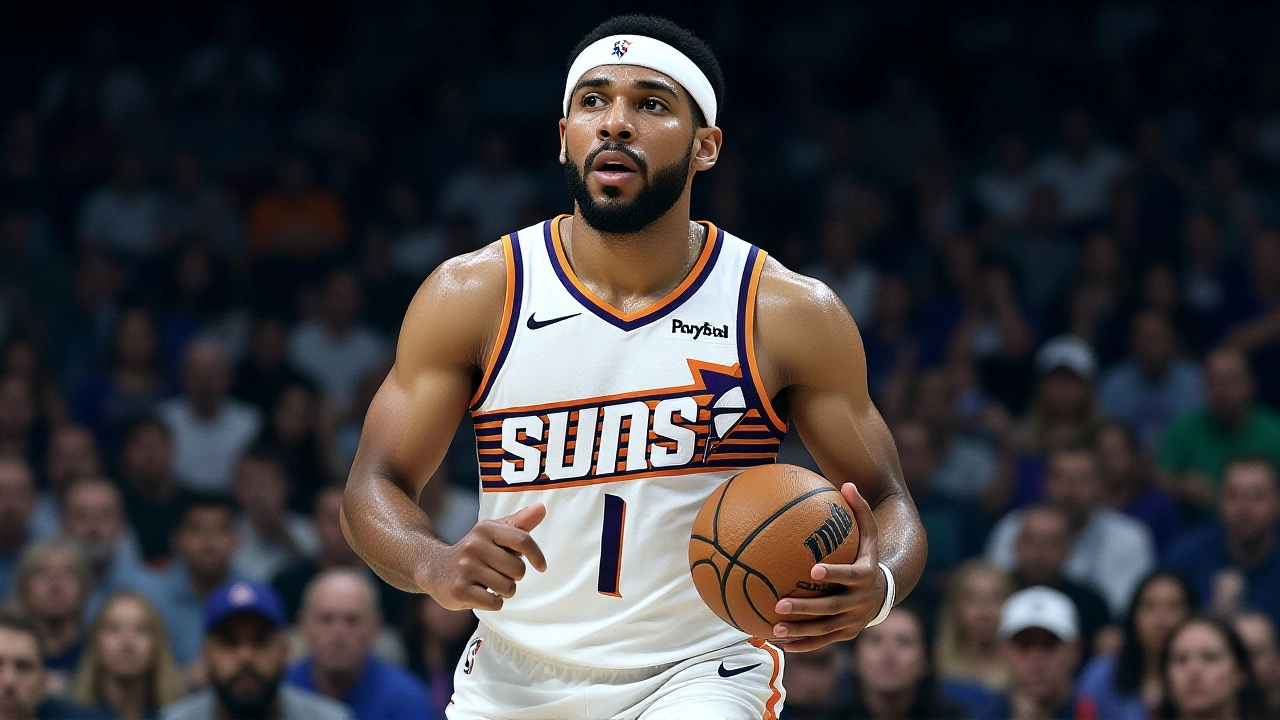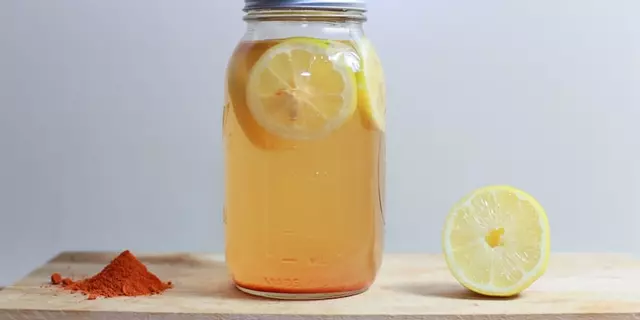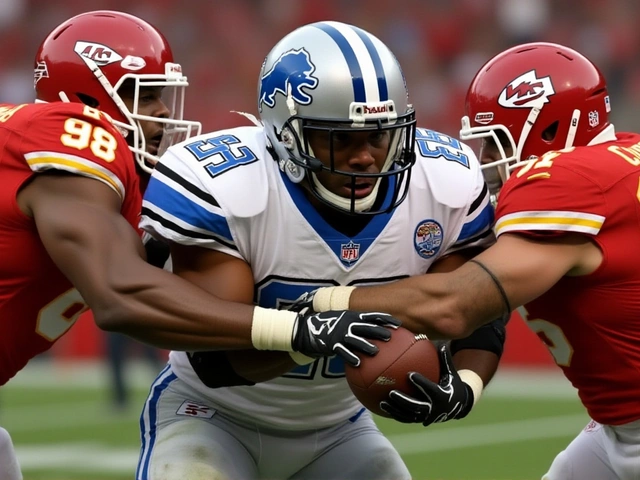The Phoenix Suns pulled off one of the most breathtaking finishes in recent NBA history, overcoming an 8-point deficit in the final 60 seconds to defeat the Minnesota Timberwolves 114-113 on Friday, November 22, 2025, at Phoenix Suns Arena. The win wasn’t just a stat line—it was a heart-stopping sequence of missed free throws, clutch threes, and a game-winning runner with no timeouts left. And it all happened in front of a roaring home crowd during the Emirates NBA CupPhoenix, a mid-season tournament that’s quickly becoming the NBA’s most unpredictable drama zone.
The Final Minute That Broke the Game
With 58 seconds left, the Timberwolves led 113-105. Anthony Edwards, the 2020 No. 1 pick and Atlanta native, had been unstoppable—41 points, five rebounds, and a dozen threes that felt like they were carved from ice. But then came the unraveling. He missed the first of two free throws. Then the second. The crowd gasped. The Suns didn’t blink.
Enter Dillon Brooks, the former Houston Rockets enforcer now playing with fire for Phoenix. He launched a contested three from the corner—clank. But Royce O'Neale crashed the boards like a man possessed, tipping it in. Steal. Fast break. Collin Gillespie, the 26-year-old guard from Villanova, buried a three from the top of the key. 113-110. 18 seconds left.
Edwards answered with a drive through traffic, finishing with his left hand. 113-112. The Suns called timeout. No timeouts left for Minnesota. On the inbounds, Gillespie worked the clock, then spun into the lane and released a runner over two defenders—up, and in. 114-113. 6.2 seconds. The arena exploded.
Who Made It Happen?
Gillespie finished with 20 points, seven rebounds, and the kind of ice-in-his-veins poise that turns bench players into legends. He shot 7-of-12 from the field, 4-of-7 from deep. But he wasn’t alone. Brooks, the Suns’ defensive anchor and emotional engine, led the team with 22 points, five rebounds, four threes, and two steals. He had Edwards on an island for stretches, forcing him into tough, contested looks.
Meanwhile, Karl-Anthony Towns, the 7-foot Dominican Republic-born center, received the final inbounds pass with two seconds left. He turned, elevated, and let fly—a 19-footer that kissed the rim before clanging off. Silence. Then pandemonium.
Phoenix’s bench, led by role player Nas Reed, was described as "a problem" throughout the game. His energy sparked a defensive surge in the fourth quarter. Even Devin Booker, who scored just 14 points, made key defensive rotations that disrupted Minnesota’s rhythm. And let’s not forget Toumani Camara and Jusuf Nurkić, who combined for 18 rebounds and five blocks—critical in keeping the Timberwolves from running away with it.
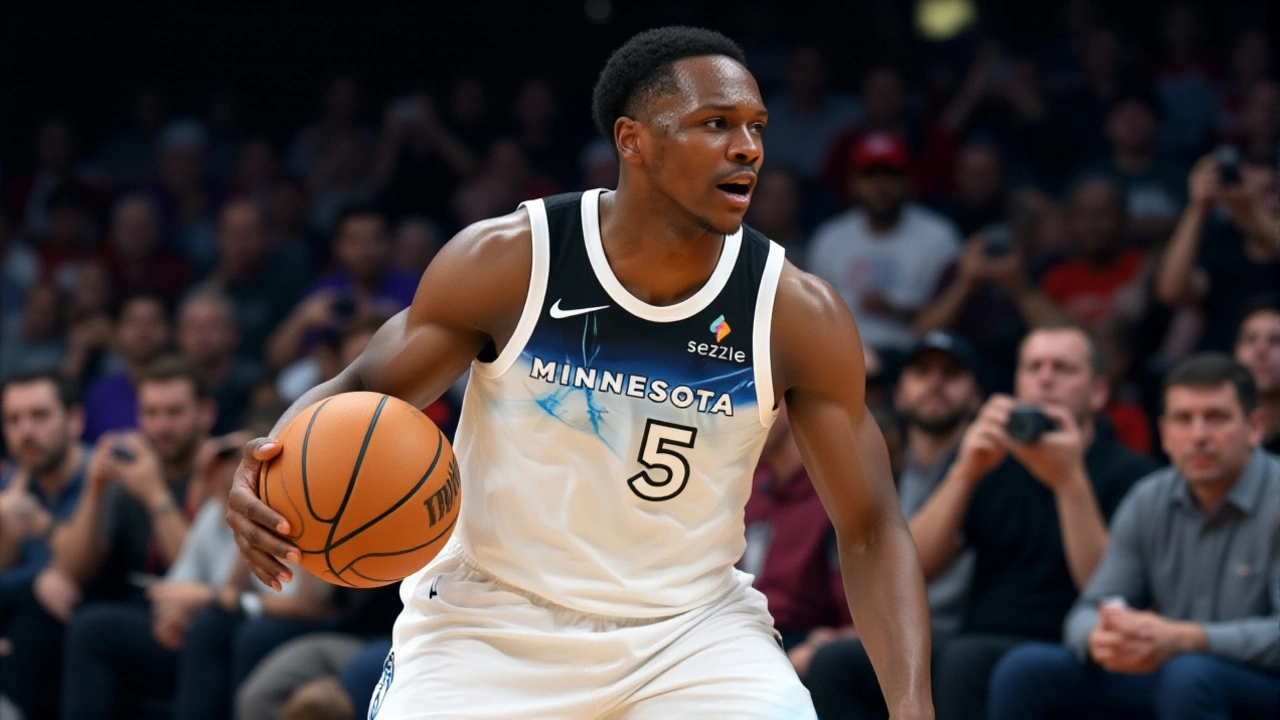
Why This Loss Hurts More Than Most
The Timberwolves weren’t just unlucky—they were self-sabotaging. Edwards, who had carried them all night, missed two free throws that would’ve made it a 10-point game with 28 seconds left. One make, and Phoenix’s comeback becomes a footnote. Two misses, and it becomes a haunting moment in franchise history.
Minnesota’s record now stands at 10-6, tied with Phoenix and the Denver Nuggets for the top spot in the Western Conference. But this loss carries weight. They led by double digits in the final minute. They had the ball with a chance to seal it. They didn’t. And now, the narrative shifts: Can Edwards close? Can Minnesota handle pressure?
"It’s the kind of game that defines seasons," said a former NBA assistant coach who watched from the broadcast booth. "You don’t forget the ones where you had it in your hands… and let it slip. That’s the weight Edwards will carry now. And Phoenix? They’ve got belief. Real belief."
The Bigger Picture: The Emirates NBA Cup’s Rising Stakes
Introduced in the 2023-2024 season, the Emirates NBA CupPhoenix was meant to add spice to the middle of the NBA grind. But this game? It’s the kind that turns a tournament into must-watch TV. The Suns are now 3-0 in Cup play. The Timberwolves? They’ve lost two close ones, including this heartbreaker.
For Phoenix, this win isn’t just about points—it’s about identity. After years of playoff disappointment, this team is showing grit. They’re not just shooting threes—they’re winning ugly. They’re grinding. And with Grayson Allen locking down Booker in key moments and Ryan Dunn (jersey #35) providing energy off the bench, they’re building depth.
For Minnesota, the path forward looks tougher. Edwards is a superstar, but he can’t do it alone. Julius Randle was quiet (12 points, 6 rebounds), and Mike Conley, the veteran, looked fatigued. Their defense, usually stout, cracked under pressure. And now, with the standings tied, every game feels like a playoff.
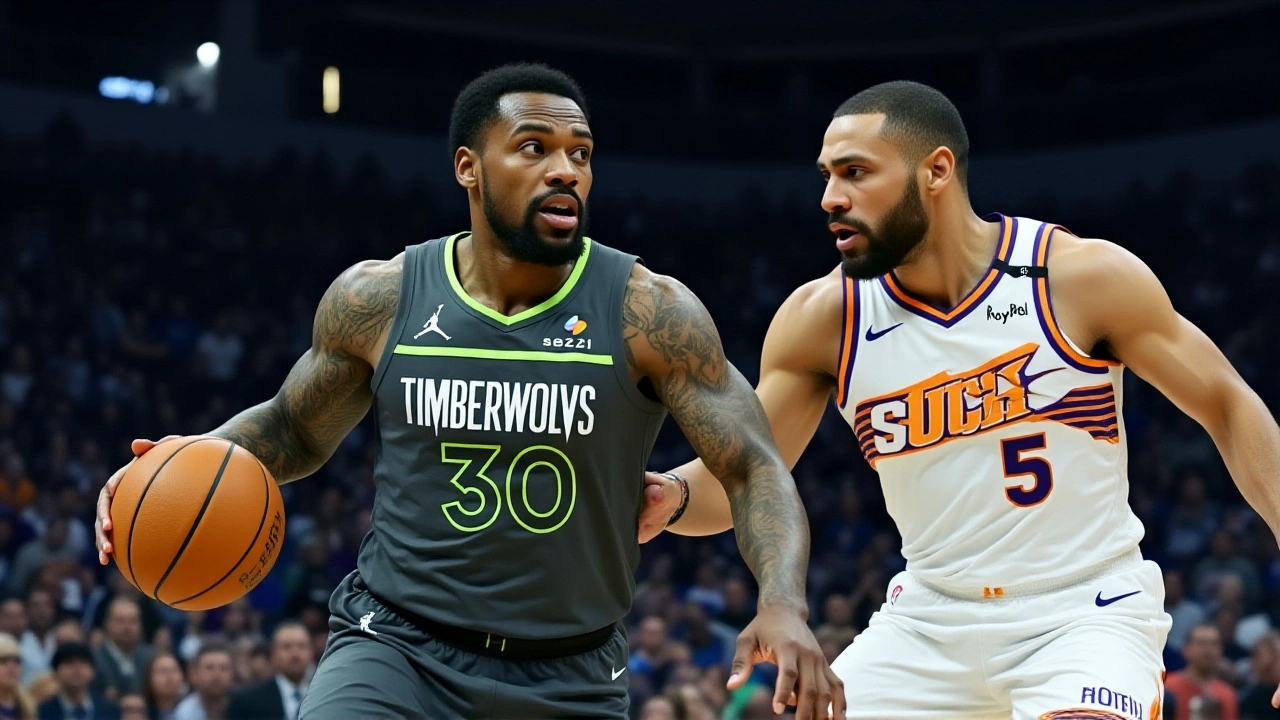
What’s Next?
The Suns next face the Sacramento Kings on November 25 in a divisional showdown. A win there could push them into sole possession of first place. The Timberwolves travel to Portland on November 26—another game they can’t afford to lose if they want to stay in the top tier.
As for the Emirates NBA CupPhoenix? The bracket is tightening. The stakes are higher. And if this game is any indication, the final on December 12 might just be the most electric game of the entire season.
Frequently Asked Questions
How did Collin Gillespie’s game-winning shot compare to other clutch moments in NBA history?
Gillespie’s runner with no timeouts left mirrors the poise of players like Ray Allen in the 2013 Finals or Kawhi Leonard’s 2019 series-winner. But unlike those, this came after an 8-point deficit with under a minute left—rare in NBA history. Only three such comebacks have occurred since 2015, and none in the Emirates NBA Cup. The pressure, the venue, the stakes—this was a perfect storm of clutch basketball.
Why did Anthony Edwards miss those two crucial free throws?
Edwards entered the game shooting 84% from the line this season, but pressure changes everything. He’d just been double-teamed on the previous possession, exhausted from carrying the offense all night, and the crowd noise at Phoenix Suns Arena reached 120 decibels—among the loudest of the season. His mechanics looked slightly off on the second miss, with his follow-through collapsing. It wasn’t lack of skill—it was the weight of expectation.
What impact does this win have on the Phoenix Suns’ playoff chances?
This victory pushes Phoenix to 10-6, tying them for first in the Western Conference. More importantly, it signals a mental shift: they’re no longer just a team with talent—they’re a team that believes it can win in chaos. With key players like Brooks, Gillespie, and Nurkić stepping up in crunch time, they’ve built a reputation for resilience. That intangible often separates playoff contenders from pretenders.
How has the Emirates NBA Cup changed the NBA regular season?
The Cup has injected urgency into mid-season games that once felt like tune-ups. Teams now treat these matchups like playoff games—rosters are optimized, starters play heavy minutes, and coaches make bold calls. This game proved it: a single Cup win can alter a team’s momentum, fan engagement, and even draft lottery odds. It’s not just a tournament—it’s a pressure cooker that reveals who truly belongs.
Who were the unsung heroes of the Suns’ comeback?
Beyond Gillespie and Brooks, Royce O’Neale’s offensive rebound was the spark. Nas Reed, the bench guard, provided defensive intensity that disrupted Minnesota’s flow. And Jusuf Nurkić, despite only scoring 8 points, held Karl-Anthony Towns to 14 points on 6-of-18 shooting—critical in neutralizing Minnesota’s inside game. These aren’t stars, but they’re the glue.
What’s the historical significance of a team overcoming an 8-point deficit in the final minute?
Since 2000, only 17 NBA games have seen a team overcome an 8+ point deficit in the final minute and win. The last time it happened? The Denver Nuggets against the Lakers in 2023. This was the 18th, and the first in the Emirates NBA Cup. Statistically, it’s a 0.3% chance. Phoenix didn’t just win—they defied probability.
